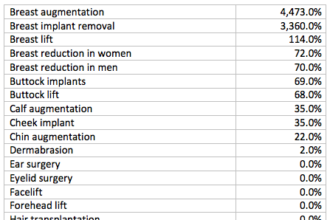The industrial development after WWII helped rebuild countries and create economic growth, but in some countries, the health costs associated with that development is too high. Exposure to toxic components in some industries affected the long-term well-being of thousands of workers, mostly men now in their sixties or seventies. Mesothelioma is closely linked to asbestos, which was present in a wide range of occupations and environments such as mines, industrial worksites, shipyards, and the military. This devastating type of cancer manifests in about 2-10% of those who were in contact with particles for a long time, totaling approximately 3,000 new cases each year. What if there was a way to acknowledge all the damage and reverse it, point-wise? This is precisely what personalized medicine is trying to do by decoding the cancer genome.
Mesothelioma treatment
Until now, the only available treatment was a combination of the general therapies used against cancer: chemotherapy, radio therapy, and surgery, with little hope for the better. All this is about to change by taking a massive step in a different direction thanks to Big Data. The goal is to use the computational power offered by distributed cloud computing to analyze millions of DNA sequences and identify mutated genes that are responsible for cancer. Once these are extracted, they need to be classified and associated each with a specific type of cancer, as there are hundreds of variations with similar symptoms.
Malignant mesothelioma screening
Currently, the insights available so far are excellent tools for cancer screening at a much faster rate than the old biopsy approach. At this point, there are no biomarkers for detecting mesothelioma. The only solution is represented by mesothelin, a substance that many people are sensitive to, therefore can?t be used on a large scale. The advantage of using Big Data-driven research is the minimally invasive approach and a broad spectrum of application, with no restrictions.
Next generation sequencing (NGS)
Researchers from Mayo Clinic have applied the technique of analyzing mutations on a small sample of mesothelioma patients (7 with pleural mesothelioma and 4 with peritoneal mesothelioma) and found that the majority have detectable mutations. This is just the first step, knowing which genes are affected, it is still necessary to create mechanisms to reverse the mutations and eliminate infected cells without damaging the surrounding tissue, as in the case of surgery or the entire organism.
Whole exome sequencing (WES)
This type of analysis sequences the patient?s protein-coding genes and helps identify the causes for different tumors. A study performed on a 73-year-old man with pleural mesothelioma and different tumors helped identify the genetic determinants of each. This helped determine if the tumors were independent or clones of each other, which would suggest a differentiated treatment. This analysis also created a genetic profile of the patient and highlights predispositions and genetic deficiencies. The advantage of this technique is that it is far cheaper than human genome sequencing.
Immunotherapy for mesothelioma
The research is still in its infancy, but once a complete mapping of the cancer types and gene mutations is available, the next phase can begin. This one will be concerned with finding the right drugs to overcome every kind of gene modification. Numerous clinical trials will be needed since for now, results are less than average. For example, one recent study found that a combination of Nivolumab and Ipilimumab can increase the survival time and decrease tumors. For now, these are only second or third attack lines, and it will take a while to perfect them to become the go-to method.
Big Data insights
for those working in bio-sciences, as they need to redefine their tools and approach to research, incorporating more statistics, information management, and data mining. A wealth of information from electronic health records, lab tests, and even the patient?s DNA is waiting to be processed to uncover patterns. The trend is to have a holistic approach to the disease, integrating information from all available sources in a multi-dimensional approach that offers different perspectives and unveils cause-effect relations that could lead to innovative treatments.
Personalized medicine
Inspired by the retail sector, healthcare can use the idea of creating user profiles and recommendation engines. For this, the raw matter fed into the algorithms is different. Instead of looking at the browser history and social media profiles you liked, it uses genetic information and medical history to put you in the right bin, according to your risks. Big Data medicine could function in a similar way to Netflix, taking into consideration your lifestyle, habits, and baseline, a drug recommendation engine could create individualized treatments after learning from thousands of previously successful cases.
Possible obstacles
There are significant drawbacks to take into consideration when thinking about cancer treatments. Some of these include the small samples of patients enrolled in clinical trials. Since the median age of the people affected by mesothelioma is around 68, they are less likely to be aware of the latest medical advancements and requiring to be part of experimental tests. Even getting to a clinic could be difficult given their poor health condition. And of course the problem of data cleanliness, accuracy and usability remain.
Is there hope?
Results of clinical trials conducted so far show that the genome sequencing method has potential and as research progresses more types of cancer will be uniquely identified by their signatures in the mutations caused. The obstacles at that point are not negligible but can be overcome by adding more patients to samples and increasing the computational power currently used. Most likely cancer will not be cured until 2020 as the Cancer Moonshot Initiative suggested, but we will be closer to offering patients a less invasive treatment alternative or at least a significant support to existing methods. The long-term goal is to have a unifying view of all cancer types and a unifying, non-invasive treatment.







